Stay in the know
All our latest podcasts delivered right to your inbox.
It’s critical to teach Black history to kids with learning differences and ADHD, as well as to students who get special education. But what’s the best way to teach it? How can families engage their kids in Black history — as well as in current events in the Black community?
This episode features Kimberly Eckert, 2018 Louisiana Teacher of the Year, in a conversation about race, parenting, and Black history. Kimberly shares her personal experience growing up as a biracial Black woman in a bayou in the South, and how she talks about race with her daughter today. She describes “80/20 time,” a method to get kids engaged in learning. Co-hosts Julian Saavedra and Marissa Wallace also share their picks for books and activities for kids — especially Black boys — to learn about Black history.
Resources for teaching Black history to kids
“Young, Gifted, and Black: Meet 52 Black Heroes From Past and Present,” by Jamia Wilson (Julian’s pick)
“I Am... (Positive Affirmations for Brown Boys),” by Aeysha Rodriguez (Marissa’s pick)
“Teaching Your Child About Black History,” from PBS (Marissa’s pick)
“Black American History,” a Crash Course on YouTube (Producer’s pick)
Harriett's Bookshop (Julian’s pick)
Uncle Bobbie's Bookshop (Julian’s pick)
Episode transcript
Julian: Welcome to "The Opportunity Gap," a podcast for families of kids of color who learn and think differently. We explore issues of privilege, race, and identity. And our goal is to help you advocate for your child. I'm Julian Saavedra.
Marissa: And I'm Marissa Wallace. Julian and I worked together for years as teachers in a public charter school in Philadelphia, where we saw opportunity gaps firsthand.
Julian: And we're both parents of kids of color. So this is personal to us.
Hello, everybody. Welcome back. So excited that we're here today. Hey Marissa, how you doing?
Marissa: I'm good, Julian. I am excited to be here as well. And we have a special guest, which I'm always excited when we have guests.
Julian: Oh, yes, yes, yes. So, Happy Black History. I mean, Black history is American history. As we celebrate and uplift this month, it's really important and crucial to remember that we are part of Black history today. We really have to have these tough conversations about race and racism with ourselves and within our community. And we have to continue to take action to fight against oppression.
And we have to remember that the actions we take today will not only affect our future, but the future of our children and obviously the future of our society and our world. So today we have a really special episode, all about Black history and how to teach Black history to kids who struggle in school or have learning and thinking differences, or even those with ADHD.
We are not excited — the word is hyped. The word is extremely hyped to introduce our guest, Kimberly Eckert. Kimberly is the dean of undergraduate studies at Reach University and innovative programs coordinator in West Baton Rouge Schools. She holds a bachelor's degree in social work, an MEd in special education, she has won many awards such as the 2018 Louisiana Teacher of the Year. And she's also an author, a reading interventionist, a reading specialist, a master teacher, and so much more. And she's also a high school teacher as we speak. So please, thank you so much. And let's bring you on to grace us with your presence. Thank you for joining us.
Marissa: Kimberly, can you share a little bit about yourself and tell us a little bit about your experience growing up in rural Louisiana?
Kimberly: Oh my. In many ways, I'm still growing up in Louisiana. My hometown — I'm from a bayou. It's called Marksville. Population's about 5,000 people. Whenever I say I grew up on a bayou, I mean, for real, like there's pirogues and I know how to fish. And if there's a zombie apocalypse, I will make sure we are all fed with like the freshest catch of the day.
Growing up as a Black woman, like on a bayou in the '80s, you don't get to opt out of conversations about race. And there's just never been a time where conversations about race, racism, all the things have not been completely, um, surrounding me. And so it's really interesting. I became a social worker because I knew that I wanted to, you know, make change and make an impact.
And there became a point that I just felt like I wasn't changing the world fast enough. Like every time I was with students and I had to leave them or I had to leave the school they were in, I just felt that there was so much work to be done. Teachers get you 180 days a year. I'm lucky if I get you an hour a week. Like I want to go in the room where it happens. And so I became alt cert as a teacher and the rest is history.
Marissa: If you can remember, like when did you become connected to knowing or wanting to be in education, and why does it continue to be such an important part of your life?
Kimberly: Education is life. And I always go back to this quote. It's Mark Twain. And he said, "I've never let school interfere with my education."
And I think so much about that sort of growing up and just the power, not only for myself, because I mean, not many people really leave my town. Not that there's anything wrong with staying. But my parents didn't graduate from high school. So graduating from high school is a pretty big deal in my space.
And so number one, like education and it being, um, sort of an equalizer and creating opportunities. I'm living a life I literally only read about in books now, and that's an amazing thing. But I also realize the power of education and its ability to combat ignorance. And I feel like ignorance, and I don't mean that in a derogatory way, but ignorance as in lack of knowledge, ignorance leads to lack of empathy.
And I don't think that we as people bother to solve problems we don't care about. And we don't care about problems we don't know about. And I think that education is the only way to help sort of illuminate not only problems but solutions and ways to make them better.
Julian: You mentioned earlier about the idea of growing up Black and not being able to escape the idea of racism and the conversations around race. You know, I know for myself, I had a very early exposure to Black history, not in my school, but at home with my grandmother. You know, my Nana made sure that we knew our story. She made sure that we knew key figures. But I wanted to ask from your perspective, when did you start getting exposed to our history? And what did that mean to you?
Kimberly: I'm biracial. I'm biracial Black. My mom's white, my dad's Black. And I think that for me, baptism into life, because literally, my mother's family, they were slave owners. My dad's family were slaves. And it's very interesting when that's such common knowledge.
So a lot of my early history was not tainted by, like, glory or excellence. It was really tainted and affected by cruelty and by, like, kind of a denial of humanity by the white family in my life. And it wasn't until later that I started to really understand that that's one piece. But the history that I have even within my own family is beautiful. And I think that that's an important legacy to make sure that I expose students to as well, because I do live in the South. And because so much of the legacy of African Americans or Black people is rooted and so entrenched in slavery and in civil rights. And we're still underneath that dark shadow of Jim Crow and how heavily history weighs on our present.
Julian: How do you go about bringing that up in the classroom? How do you go about bringing that up for your own students?
Kimberly: For me — and this is like day one, no matter what class I walk into, whether it's, you know, first hour, it's seventh hour, no matter which school it is or what the demographic looks like, making life authentic for students is front and center. Because sometimes school is the least realistic place our kids go. And so I think that helping students, number one, understand that there is this huge world that has a huge history, and the point that you actually made whenever we opened, we're all a part of it.
And it just becomes a matter of what matters to you. What do you care about, what are you interested in? And then let's find, let's find where that's been done before. Let's find ways where that's been done by somebody that looks like you — by someone that looks different than you. When we're not sort of tokenizing or othering people and their contributions and their history and their story and their truth, but bringing them in to a much larger perspective and a much larger, more universal truth.
Marissa: So if individuals are not blessed and fortunate to have someone like you in their corner, how do you feel that outside of those four walls, when we're talking about families or parents, what is their responsibility and how important is it for them to also talk about race and racism with their, with their children at home?
Kimberly: So I'm a teacher. But I'm also a citizen, right? Like a taxpaying American citizen. And I'm also a mother, I'm a friend, I'm an ally, I'm an activist. So I'm so many different things, right? My child, she too is biracial, and she presents white, OK? And I'm obviously a lot darker than my child. And within my own community — my child's 6 years old. I cannot tell you the conversations that we have to have the dinner table when, for example, there's this, there's this boy in her class that's been ridiculing her and telling her that she's adopted 'cause her mom's Black. And then there's a girl in her class who told her that Black people and white people shouldn't be together and can't be boyfriend, girlfriend. And I know that it started even sooner than that, like at her daycare.
But the problem is that whenever we are complacent, and whenever we do not speak at all, and we become complicit, because those conversations are happening. If we're doing nothing to counter it, then we're doing nothing to counter it.
Marissa: And I think those are such huge pieces that our listeners that are out there, like, that is, that is kind of like the starting point, right? Like to build that in individuals, that is where the change becomes that, yeah. So you're doing amazing, and I'm curious what would you believe as reasons that some kids may not engage with Black history? What stands out to you as engagement issues? Whether or not willing or ready to be part of conversations?
Kimberly: OK. I think that at the most basic level, if a student isn't engaging or isn't interested, you could really fill in the blank. Like why aren't they engaging in math? Why aren't they engaging in this text? So I think that's one piece of it. that if things aren't really elevated in a classroom, or if they're not valued in a class, they're not going to be magically valued by the people that make up the classroom.
And I think another space, again, like within a community, if things just don't seem to matter that much, you're not going to care. And it goes back to the things that I said at the beginning, like, you know, an education should help us to understand, like, to be aware, to notice, to listen. Because we just don't bother.
We just can not be bothered whenever we just don't care about the thing. And so, you know, what is the role of education if not to make more visible the things that we really want to matter in our society and to our humanity? So I think that that's part of it, like exposure, conversations, and valuing, and making sure that students know the reasons why we value Black history, the reasons why we value the contributions of the human beings who helped shape the world as we know it. And you know, that's got to come from someone else because students don't just sprout that interest and that knowledge without being exposed or without being taught.
Marissa: Absolutely. So Kimberly, once you get students engaged, right? So once you create that space or spark that engagement or that interest for them, what are some tools, you know, since you do have a background working with students in the special education realm and in inclusion, what are ways in which, you know, both families and educators can support kids with learning differences when they're learning history? You know, I know our focus has been Black history, but what are some specific ways in which you can help support students who have learning and thinking differences to really get a lot out of what these important lessons are?
Kimberly: And here — this is so funny. So mostly, right, like I'm in English and literacy and literature and reading intervention, like students with disabilities with reading, right? That's my jam. However, I think we're all a little bit history teachers, right? And I think one of the most powerful things is that, you know, Black History Month or, or any like month or week, which isn't nearly enough, but of honor, and of celebration, those are opportunities to go so far beyond history as we know it.
And Julian, to the point you made at the beginning, you learn so much about history through your family's history, right? And I think that with students with disabilities, but certainly students without disabilities, all are a part of their own life. They've got interests. And so I think that first helping students just understand like themselves, what are your interests?
Like what is super cool to you? Oh, you're really into ballet. You love, oh, ballerinas. Let's look at this. Did you know that there's amazing, like prima ballerinas that are women of color, like let's research that. So it's like kind of finding whatever you're interested in, because there is a place in history and there's a place in your present that will teach you so much more about that thing.
Is it baseball? It it activism? Is it cooking? Is it your family's business? So I think starting with the inside, like starting with your learner, and then making the circle bigger and bigger and bigger, so that they start to understand that they are the center of these really beautiful, very large concentric circles.
So I would say that for anything, how can we make it relevant with our students at the center? Because that's what makes any of us really interested and really dig whatever it is that we're learning. Whenever we are a part of it. And we can see ourselves in it.
Julian: Yeah. I mean, that's a great entry point for any learning, right? And especially our students with learning and thinking differences, the idea of getting close to them and finding a way to unlock some of the information that they already have, but just retrofitting it so that it connects with the topics that you're teaching about is a really strong practice.
You know, you're talking to a former history teacher. I love, love, love the classroom days. And the one thing that I always wanted to learn more about is just in terms of ways that you can support some of our students with learning and thinking differences when learning history. I'm thinking of universal design was really effective in the classroom, you know, where we really think about the why, the what, the how of what we're doing, and giving multiple options for students to learn the content that we're teaching. But I'm wondering from your perspective and your expertise, what kind of supports should be put in place for our students when learning history?
Kimberly: So, your question was like, how do we involve our students with disabilities or neurodiversities? And what's so cool, like who said there's one way to teach history? Like whose crazy idea was it for us to cram facts and fill out multiple choice tests and then forget everything we just learned? Like, what if there's another way? Wait! There is! And I think that like, because there's always, there's always a real life parallel or companion. Like honestly, much of history does not stay in the past.
And I think that whenever we become super good at crafting the right question to ask, that helps have agency to seek out the answer. That's a really powerful thing. And to help them see how does that matter though, in the community? Like what can you do? I don't need you to remember facts because they're facts. I needed to remember because it shaped what we do in this space. Like it shaped what we do here, what we're going to do next.
So I'm not a history teacher, and yet there's so much history within my class. And so right now I teach a class that's super inclusive. It's a class that's called Educators Rising. It's like where we're recruiting the next generation of high school teachers, which is super cool. But a big part of this class has become like, you know, things that are important, I think, to the teaching profession, but certainly important in terms of value. And I think inclusivity and celebrating differences, and so needless to say, my students are very interested in inclusive practices.
They're devising this project, which we're calling it a project, but really a movement that's going to stretch beyond a moment throughout March, where number one, they're starting like this "Ban the R Word" campaign. And they're also going to sort of challenge our school to be more inclusive around Special Olympics. Like why is there no pep rally? Why is there no, like, parade?
And so it's just, it's amazing because that's not part of the curriculum. That's not part of anything I was mandated to teach. But my students were really interested in civil rights. And they were super interested whenever I asked them the right question, like who else is affected? Like is there only one group that has rights, or whose rights that should be protected, like whatever it is. And then it just makes these amazing conversations where students are encouraged to sort of, you know, use the Google, like go find the stuff, go find the information and like, see where we are now. And what could you do to become a part of that conversation, or create, or fix, or change, or improve. And it makes amazing things.
And it's why, you know, no two classes of mine are ever the same. Because the kids within the class are going to be so interested in so many different things.
Julian: And I think a lot of what you're talking about is related to skill acquisition. And the idea of history is not about the factual content. It's about what you do with that information. Like how do you interpret the information? Who are the people that are sharing the information? And what kind of power can that give you?
Marissa: I want us to think about, you know, again, like this is amazing, Kimberly, that individuals have used, so when we continue to think about and push for how our families and our listeners can also do some of this at home, is there any particular ideas you have for our families, or resources, like specific resources for Black history that you've come across that are just excellent resources that they can have in their households that are easy to access, that they can also share this, and lift up their own children in their own home settings?
Kimberly: I'm going to share a practice that, you know, parents can use, and definitely teachers. I ascribe to 80/20 time, where 80 percent of the time we're like working on the things that we need to like, whatever it is, the standards that we need to teach. And then 20 percent of the time, we were working on stuff that matters to us. And I will say this: Students who are often the most disenfranchised from more traditional teaching or more typical classrooms, they are the ones who thrive and gravitate the most toward 80/20 time. It's actually been students who, they're kind of used to making an A and used to doing it the right way, it's actually those students that I actually have to work a lot more with to be able to help them find, like, a passion, which is super interesting.
So the concept behind this, like 20 percent of the time, what matters to you. But I will say this: That's harder than it sounds, because oftentimes the experience of school has sort of suppressed curiosity and it's suppressed passion in many ways. And I'm sad to say that, but I know it's true and I've seen it, like year after year.
But I do have to spend a lot of time helping kids stoke and reignite that passion that they somehow lost along the way. So sometimes that's questioning like, you're like, wouldn't it be cool if you learned — like giving questions to them. Like, what do you want to learn? Wouldn't it be cool if you could — and then having them kind of like fill in the blank.
'Cause sometimes our kids have been sort of pushed down so long, they forgot how to dream. They forgot how to question. They forgot how to think. And that is a really tragic thing. So I just want to tell people that if you embark on sort of an 80/20 time or a genius hour, a passion project, it goes by many different names, be prepared, because you might think everybody would be so excited. Like "20 percent of the time we can do whatever we want?!" But more often I've found that I have to help them re-meet their former selves, the selves that had curiosity and spunk before we sort of smushed it out. And we spend so much time praising kids who think outside the box, but it's a lot of times our classrooms that shove down the lid.
Marissa: Yeah. And that 80/20 is something I think can be translated to parents and guardians using that in their homes, right? Like I think that's absolutely ways in which that it can be a tool just to elevate and develop their children and to have those conversations. And because our kids are always watching, like, I remember I was watching a documentary on Netflix or one of the many streaming devices that we have. And I didn't even recognize or realize that my son was paying attention until a few days later where he's like, "Mommy, can you" — 'cause he's got this amazing hair. He was like, "I would, I would really like my hair to look like that." And he didn't know the names. He doesn't know the specifics. He's like, "but that gentleman who fought really hard for us, people like me and Daddy, to not be slaves."
And I was like, what? At first I'm like, what does he talk? Like, I'm like, I'm thinking to myself, I'm like, what conversation? You know, where is this coming from? And then I had remembered, I'm like, "Oh, you're talking about Frederick Douglass." And I'm like, oh my gosh, like, let's do it. And I mean, I did my darndest. As you know, I mean, I will own my whiteness in this moment. And I did my darnedest to make his hair look as cool as it could just because he wanted to embody someone who he had heard that I didn't even know he heard. But then it turned into this beautiful conversation that we could have where then I explained to him who Frederick Douglass was. I pulled up pictures.
That was like a starting point where then, and then it filtered into, you know, him wanting to go to preschool. At that time, he was still in preschool. And he, you know, a couple of years ago we had celebrated Kwanzaa and he had a dashiki. He was like, can I wear this to school? And I'm like, absolutely. It's those little moments, right? So we really have to encourage our families to sit back and realize that their kids are watching and listening, right? So what do you want your kid to watch and learn from you? And then are you ready to have those conversations and are you ready to share those stories and share the truth behind our history?
Kimberly: But I will also say this, like in addition to don't get discouraged if you have to like reignite some of that passion and curiosity. Also sometimes we inadvertently and lovingly make so many assumptions about our kids. Our students or our own children, and what they want to learn. And I'll just tell you, the student that helped me, like, kind of take a step back. One of my students, she was in my inclusion class and she had a degenerative disability, and it's a pretty profound physical disability that is degenerative. Like over time, I actually taught her like two or three years in a row. And for her passion project, I just knew she was going to want to do some type of awareness about this.
And I kept giving her all these resources to talk about that and to like, you know, help people understand. Instead she was like, well, no, I have a cousin who has leukemia. I want to raise money for St. Jude's. Oh, so you have other interests besides the ones I try to put on you. OK. So as a teacher, I'm certainly always learning.
And that is something, too, like the humility of letting kids drive and letting them tell us what their interests are. And this, just so you know, this girl, this goddess girl raised like 3,000 bucks for St. Jude's. So that's the other thing. Like sometimes we don't need to really lead or guide by what matters to us or what we think matters to our kids. Like we can also just kind of take a step back and let them drive and listen to why they got to where they are.
Julian: Agreed. I was thinking about how Marissa was talking about what she does with Lincoln, bringing up Frederick Douglass. And I thought about my own children and how not even during just Black History Month, but throughout the year, we sit at the dinner table and we always read a couple of chapters of a book during dinner, right? So, you know, we go around the table and we share like, what's our fun thing for the day? And then what are we grateful for? And then it's a reward to get to read a couple of chapters. And, you know, obviously during Black History Month, we focus on reading a few books that are related to Black history.
You know, shout-out in Philly. If you're in the Philly area, Harriett's Bookshop and Uncle Bobbie's Cafe. Both of those are fantastic resources for Black-owned bookshops. And many of the books we get are from there. But I'm thinking from, for me, one of my favorite things to do is just sit and read to our kids.
You know, our favorite book is a book called "Young, Gifted, and Black," and it's by Jamia Wilson. And it has 52 heroes from past and present. My kids can name all the people in that book based on the fact that it's written on the level they understand. And we talk about it, and it brings up all this conversation. And I'm wondering, are there any, like favorite best hits for you? And what you do with your own children, or what you do in the classroom that you want to uplift now while we have a chance?
Kimberly: It's limitless, and the reason why is because I don't select the works. I literally send kids out to, like, everything I said is really to go like find the things that matter and then bring those things in.
With my own child, obviously, because of where we are and the conversations that we've had, I try to get any type of children's books that really, like, celebrate diversity, like period. Whenever we approach those things, just being mindful of how we're telling those stories or how we're entrusting those books, or those movies, or those songs to kids where we're not condescending. Like, you know, "This Black person somehow was able to — ." No. Like, this person was brilliant and they invented this thing or this, this style of music, this style of dance. This is amazing ability. So that we're not like well-meaning, I suppose. And so I think you get the idea. So no matter what we choose, because you're not going to choose wrong by choosing to celebrate, by choosing to observe this month, especially throughout the year, right?
Marissa: There's one other book that came to mind. My son loves it. This one that he's been reading, it's "I Am," and it's affirmations for Black boys. And I feel like that's another important piece that we have to also remind our children. So for parents and guardians of Black children, remind them that they are part of this history too, and they are to be celebrated, right?
So they're making history each day. And so that's one of his books that from like the age of 3, like we started going through all the affirmations and now at 6, right, he can, thankfully, it's such a beautiful thing to see him read himself, but he will say them. And it's just a moment where I know he feels connected and he feels important.
Julian: I just wanted to also remind our listeners that all of the resources that we've shared will be available in our show's notes and many more resources that will be available. So please look at them at your leisure. But again, we just want to openly celebrate the fact that you took the time to come to talk to us tonight. And the work that you've been doing is incredibly important, and it inspires me to even do more in my own line of work. So I just want to, again, reiterate how important it was for you to come on. We appreciate you.
Kimberly: Thank you so, so, so much.
Julian: This has been "The Opportunity Gap," a part of the Understood Podcast Network. You can listen and subscribe to "The Opportunity Gap" on Apple, Spotify, or wherever you get your podcasts.
Marissa: If you found what you hear today valuable, please share the podcast. "The Opportunity Gap" is for you. We want to hear your voice. Go to u.org/opportunitygap to find resources from every episode. That's the letter U, as in Understood, dot O R G, slash opportunity gap.
Julian: Do you have something you'd like to say about the issues we discussed on this podcast? Email us at opportunitygap@understood.org. We'd love to share and react to your thoughts about "The Opportunity Gap."
Marissa: As a nonprofit and social impact organization, Understood relies on the help of listeners like you to create podcasts like this one to reach and support more people in more places. We have an ambitious mission to shape the world for difference, and we welcome you to join us in achieving our goals. Learn more at understood.org/mission.
"The Opportunity Gap" is produced by Andrew Lee, Cinthia Pimentel, and Justin D. Wright, who also wrote our theme song. Laura Key is our editorial director at Understood.
Scott Cocchiere is our creative director. Seth Melnick and Briana Berry are our production directors.
Julian: Thanks again for listening.
Host
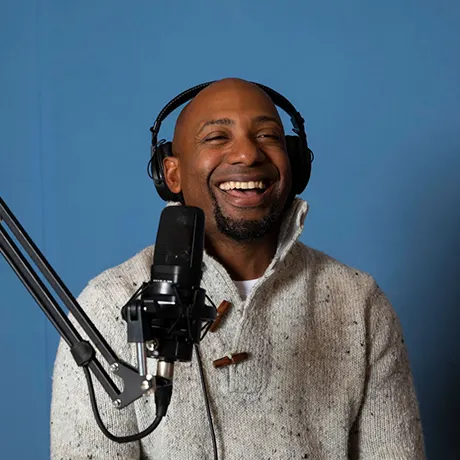
Julian Saavedra, MA
is a school administrator who has spent 15 years teaching in urban settings, focusing on social-emotional awareness, cultural and ethnic diversity, and experiential learning.
Latest episodes
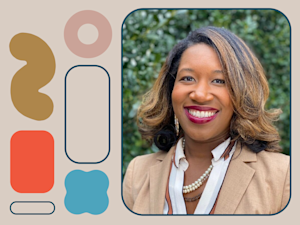
April 10, 2024
Myths and misinformation about ADHD and learning differences show up all the time on social media. Find out what’s fact and what’s fiction, and learn about the impact of these myths on kids of color.
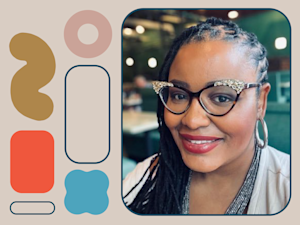
March 27, 2024
ADHD advocate René Brooks was diagnosed with ADHD twice as a child. But it wasn’t until she was diagnosed again as an adult that she finally got support. Listen to her story.
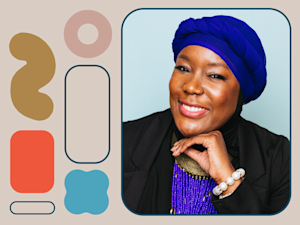
March 13, 2024
Learn about the steps to getting an IEP and starting your child’s special education program. Get tips from an expert.

February 14, 2024
Learn how four members of the Understood team are making an impact in the lives of people with learning and thinking differences.
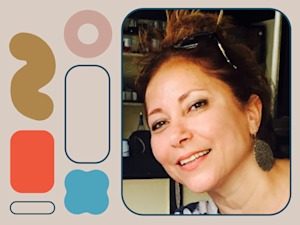
January 31, 2024
How can high-schoolers and their families prepare for life after high school? Get advice and tips from a college advisor.

January 17, 2024
Some kids don’t like to share information about their school day. Get tips on how to get them to open up and share. These tips and conversation starters can help your child to open up.
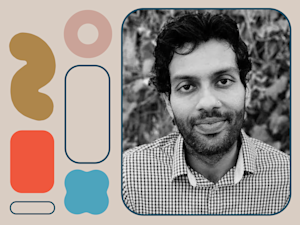
January 3, 2024
The school-to-prison pipeline has disrupted education for kids of color for a long time. Learn what the pipeline is and why it’s critical to end it.
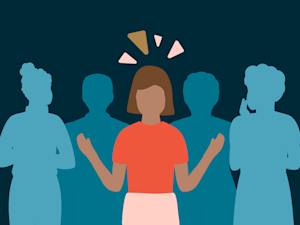
December 6, 2023
Telling your relatives about your child’s challenges can be difficult. Get tips on how to make the talk easier to manage.

November 8, 2023
For some students of color, feeling mistreated by teachers is a common experience — and it shouldn’t be. Learn how to help kids self-advocate.
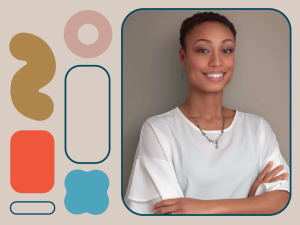
October 25, 2023
Dyslexia is a common learning difference that impacts many kids of color. Hear from an expert and learn ways to support kids in the classroom.
